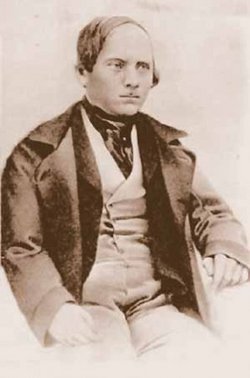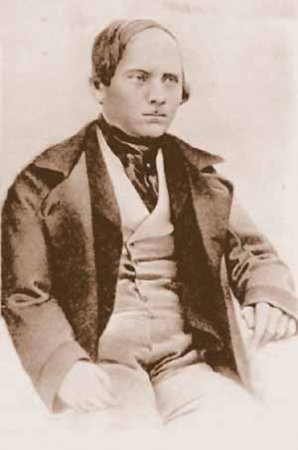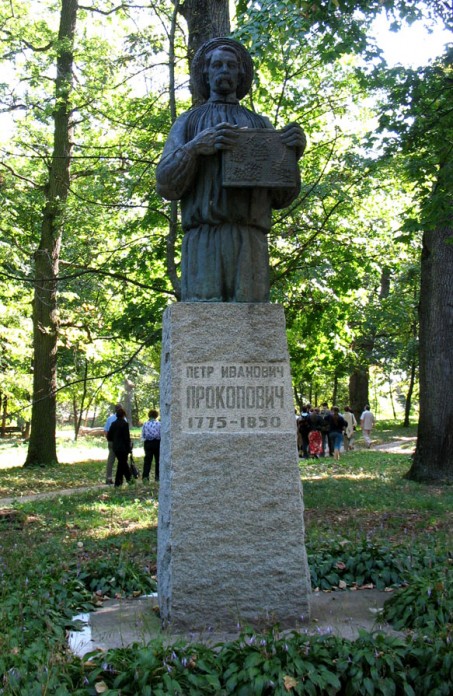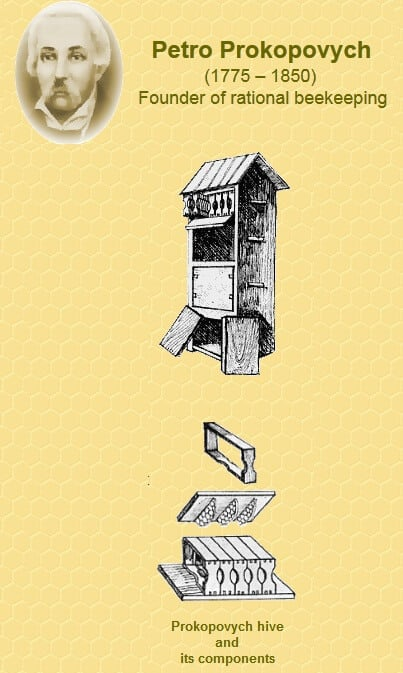born in the village of Mytchenky, near Baturyn, in the Northern area of Ukraine (Malorossii) in the area of Konotopski Uezd, Imperial Russia.
Businessman. Honey Producer.
Founder of rational (commercial) beekeeping.
The parents sent Peter to an Eastern Orthodox Gymnasia (School), where he studied for 8 yrs. Upon graduating, he was planning to be a teacher. He enlisted himself into the czarist army and worked under the guidance General Suvorov. In 1799, he left that post. He stayed at his brothers house for the summer, and was studying how bees work in the fields and with the flowers. This was enough for him to decide that he wanted to progress further and by 1808, he already had 600 bee colonies in northern Ukraine, just outside of Konotop.
Word was getting around that Peter has become a Bee Specialist, and by 1814 has developed "NEW" forms and ways of mass producing Honey. He invented several new ways of collecting the honey and not harming bees as it was previously done around the world. This invention was the "Wooden Beehive Frame". The other noted invention was called the "Queen Excluder", which permitted the working bees fly into the beehive. He introduced a number of novelties in traditional beekeeping that allowed significant progress in the practice.
Amos Ives Root (1839 – 1923) USA, highly praised the inventions of Prokopovych: " His frame has much in common with a modern section frame with openings for passage of bees, the walls of his beehive were joint in the lock. He applied methods, which far outstripped his time ".
In the 1800's, he managed to convince the czar, to have the railroad go around his very important "Honey-Bee Management grounds and Institute."
In 1827, he was already publishing works and journals regarding bee-keeping, and his methods were being shared around the world.
In 1828, some 700 students graduated his Honey-Bee Institute. There were some 2000 Bee Colonies that were used.
By the time of his death, he had some 7000 bee hives.
He was awarded with high honors, the "Order of Saint Vladimir".
born in the village of Mytchenky, near Baturyn, in the Northern area of Ukraine (Malorossii) in the area of Konotopski Uezd, Imperial Russia.
Businessman. Honey Producer.
Founder of rational (commercial) beekeeping.
The parents sent Peter to an Eastern Orthodox Gymnasia (School), where he studied for 8 yrs. Upon graduating, he was planning to be a teacher. He enlisted himself into the czarist army and worked under the guidance General Suvorov. In 1799, he left that post. He stayed at his brothers house for the summer, and was studying how bees work in the fields and with the flowers. This was enough for him to decide that he wanted to progress further and by 1808, he already had 600 bee colonies in northern Ukraine, just outside of Konotop.
Word was getting around that Peter has become a Bee Specialist, and by 1814 has developed "NEW" forms and ways of mass producing Honey. He invented several new ways of collecting the honey and not harming bees as it was previously done around the world. This invention was the "Wooden Beehive Frame". The other noted invention was called the "Queen Excluder", which permitted the working bees fly into the beehive. He introduced a number of novelties in traditional beekeeping that allowed significant progress in the practice.
Amos Ives Root (1839 – 1923) USA, highly praised the inventions of Prokopovych: " His frame has much in common with a modern section frame with openings for passage of bees, the walls of his beehive were joint in the lock. He applied methods, which far outstripped his time ".
In the 1800's, he managed to convince the czar, to have the railroad go around his very important "Honey-Bee Management grounds and Institute."
In 1827, he was already publishing works and journals regarding bee-keeping, and his methods were being shared around the world.
In 1828, some 700 students graduated his Honey-Bee Institute. There were some 2000 Bee Colonies that were used.
By the time of his death, he had some 7000 bee hives.
He was awarded with high honors, the "Order of Saint Vladimir".
Advertisement
Advertisement




